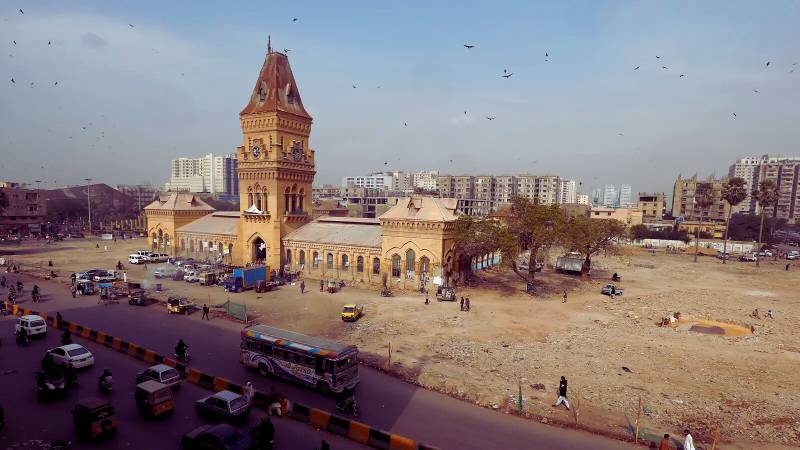
Karachi, Pakistan's largest and most diverse city, is a melting pot of cultures, with people from all over the country living and working side by side. However, not everyone who moves to Karachi feels fully embraced by the local community. Among those who often face challenges are Punjabis and Pashtuns, commonly referred to as Pathans, who sometimes encounter subtle or overt signs of alienation. This lack of inclusivity can lead to feelings of being unwelcome, despite their significant contributions to the city’s economy and culture. Addressing these issues is important for creating harmony in Karachi, a city whose strength lies in its diversity.
Pashtuns are among the largest ethnic groups in Pakistan, with many coming to Karachi for better job opportunities and living conditions. They work in various fields, such as transportation, construction, and trade, and have contributed significantly to the city's growth. However, despite their contributions, they often face discrimination and prejudice. Some Karachi residents hold stereotypes about Sindhis, Punjabis, and Pashtuns, viewing them as outsiders who do not belong in the city. These stereotypes can lead to misunderstandings and unfair treatment.
One reason for this tension is the city's history. Karachi has seen several waves of migration, starting with the people from India after partition in 1947. Over time, this created competition for resources like housing, jobs, and education. As the city grew, so did its challenges, including rising ethnic divides. In many cases, people from different ethnic groups felt they had to compete for limited opportunities, which fueled mistrust. Pashtuns, as one of the newer large groups to settle in Karachi, became targets of this suspicion.
Karachi's political landscape has long been shaped by ethnic dynamics, with different groups competing for influence and representation in the city. Many political parties have leveraged ethnic identities to build support, often pointing fingers at other communities as the cause of the city's challenges. This has created a narrative of division, where Punjabis and Pashtuns, as prominent and growing communities in Karachi, are sometimes unfairly portrayed in a negative light. Such portrayals not only fuel stereotypes but also deepen existing divides, making it harder to build unity in a city that thrives on its rich cultural diversity.
The city’s real strength lies in its diversity. Each community brings its own unique culture, traditions, and skills, which enrich the city’s overall character and economy
Social attitudes also contribute to the challenges these communities face in Karachi. With their distinct languages, cultural practices, and traditional lifestyles, Punjabis and Pashtuns bring diversity that should enhance the city's cultural richness. However, these differences are sometimes misinterpreted as a lack of willingness to integrate. This perception leads to exclusion and stereotypes, even though many of them actively contribute to Karachi’s economy and social fabric. Instead of celebrating these differences as a source of strength, they are often used to create barriers, undermining the inclusive spirit that Karachi needs to thrive as a truly diverse metropolis.
Unwelcoming attitudes in Karachi can have serious consequences for both the city and its people. They create divisions that hinder unity and cooperation, making it difficult for the residents to come together and work towards the city’s development. On a personal level, such attitudes leave individuals feeling isolated and unwelcome in a place they want to call home. This sense of exclusion can discourage people from settling in Karachi, potentially damaging its reputation as a city of opportunity and growth. Over time, these barriers could limit the city's potential to thrive as a truly inclusive and prosperous metropolis.
It is important to acknowledge that not all Karachiites hold contentious views. Many residents are welcoming, kind, and supportive of the city’s diverse communities. Community leaders, activists, and ordinary citizens often take proactive steps to bridge divides and promote understanding among different ethnic groups. Social initiatives that encourage interaction and collaboration can help break stereotypes and build trust. Schools, workplaces, and neighborhoods also have a vital role to play in developing inclusivity, creating spaces where people from all backgrounds can connect, learn from one another, and contribute to the city’s vibrant and unified spirit.
Karachi is a city full of potential, driven by the energy and contributions of its people from different backgrounds — Sindhi, Punjabi, Baloch, Pashtun, and many others who call this city their home. The city’s real strength lies in its diversity. Each community brings its own unique culture, traditions, and skills, which enrich the city’s overall character and economy.
When Karachi embraces this diversity and develops a spirit of inclusion, it can overcome many of the challenges it faces. Inclusion means creating a space where everyone, regardless of their background, feels valued and can contribute to the city’s growth. This approach can lead to greater opportunities, not just for the individuals, but for the city.
A city that welcomes and values all its residents does not just benefit newcomers or specific groups. It creates a stronger, more vibrant community for everyone. This sense of unity and cooperation makes Karachi a place where people work together to achieve shared success, helping the city grow and thrive in the process. Embracing diversity and inclusion is key to unlocking Karachi's full potential and securing a brighter future for all its citizens.

